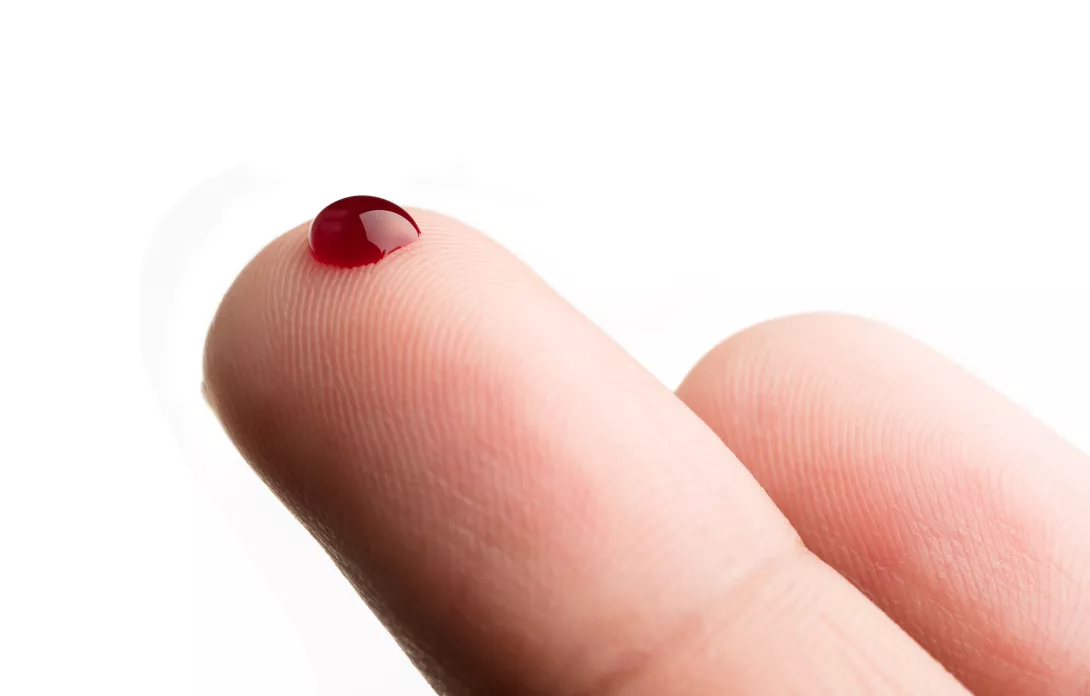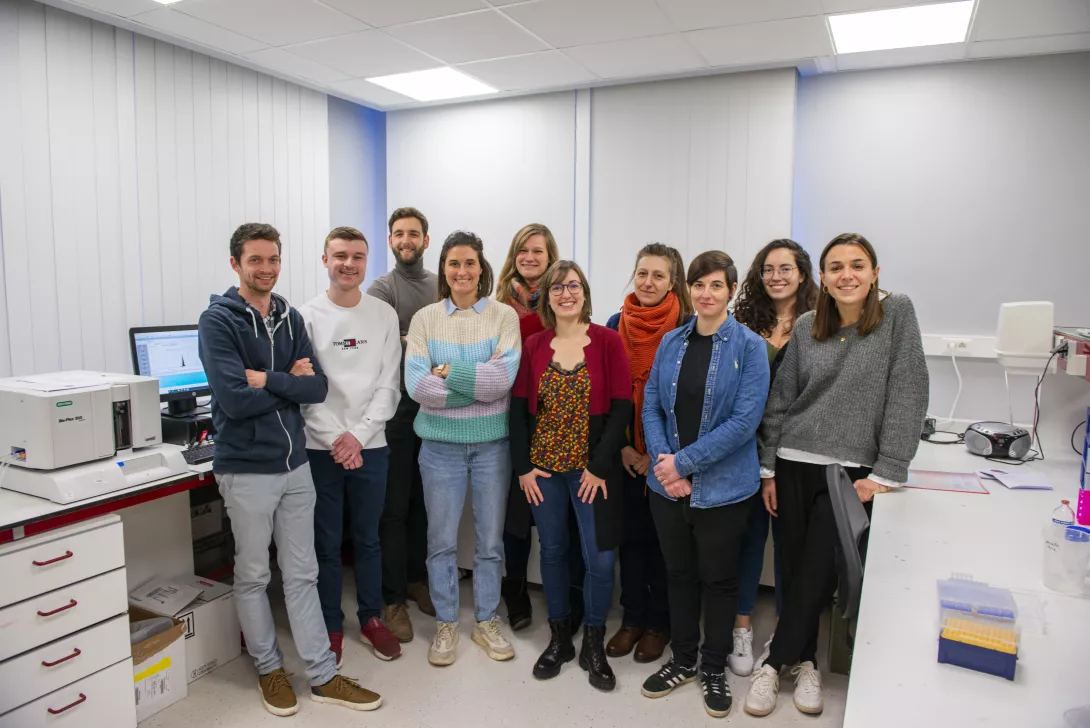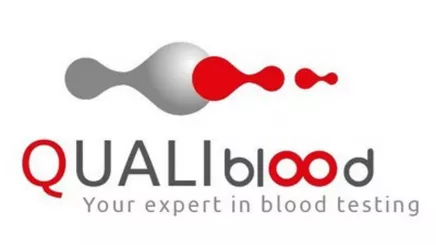March 2020. While most Covid-19 screenings are performed via a nasopharyngeal smear subjected to an RT-PCR test, Jonathan Douxfils and his collaborators are embarking on a clinical study to assess which blood parameters could predict the severity of the disease. In concrete terms, the COVIMOA project ("COVI" for Covid and "MOA" for Quanterix's Simoa® technology) is being conducted on the basis of analyses carried out on blood samples from patients with a variety of profiles who are positive for the virus and who are monitored during their hospital stay. The researcher's team demonstrates that it is possible to detect the presence of the SARS-CoV-2 virus, even at extremely low levels, and to check whether antibodies have already been produced by the patient, provided that the necessary technology is available. QUALIblood has the technology. It has acquired a rather exceptional tool, of which there are only 90 in Europe, which makes it possible to measure blood markers with a sensitivity at least 1000 times greater than ELISA technology (see box opposite), allowing the detection of biomarkers with a capillary sample, i.e. a drop of blood at the tip of the finger.
Screening: three types of tests
Screening is one of the pillars of the strategy put in place to curb the Covid-19 epidemic. Three types of tests are used: molecular tests (RT-PCR), antigenic tests (available in pharmacies) and serological tests. The detection of specific proteins in the blood can be done via an ELISA test, which stands for Enzyme Linked ImmunoSorbent Assay. This test will recognise the protein of interest and generate a signal following the formation of a complex between this protein and the test components. The Simoa® technology used by the QUALIblood laboratory pushes this technology to its limits, as it allows the detection of proteins practically one by one, pushing the limits of detection to values unequalled to this day. Detecting specific proteins at extremely low levels will allow diseases to be detected even before they become clinically apparent.

COVIMOA: in search of a biomarker to anticipate the severity of the disease
The COVIMOA project is in line with the COVILAB projects in Namur, a grouping of industrial, hospital and university laboratories initiated by Jonathan Douxfils to pool their respective expertise to work on Covid-19. This project involves many actors, including the members of the spin-off, researchers from the Department of Pharmacy of the NARILIS Institute, health professionals from various hospital institutions in Wallonia and Brussels and even students in pharmaceutical sciences from UNamur.
The aim is to study the link between the viremia, i.e. the level of presence of the virus in the blood, and the immune response of patients. This makes it possible to determine whether, for example, a patient with a severe form of the disease has a high viremia and a low immune response.
Based on this hypothesis, the correlation between viremia and disease severity should be analysed as a predictive biomarker for a severe disease course. In the study conducted by this research group, the severity of the disease was measured according to WHO recommendations. Impressively, the measurement of the viral load in the blood was able to distinguish severe cases from non-severe cases at an early stage, a distinction that is not observed with RT-PCR performed on nasopharyngeal swabs. Jonathan Douxfils, CEO of the QUALIblood laboratory and academic at the University of Namur: "Once the patient exceeds a certain threshold of virus in the blood, he or she may have up to a 30-fold increase in the risk of developing a severe form of the disease. From a prognostic point of view, this is remarkable! [...] At the patient level, this allows us to act quickly with those whose initial symptomatology is not particularly suggestive of an evolution towards a severe form. Logistically, it could identify patients at risk of progressing to a severe form to ensure that sufficient hospital resources are available and to anticipate a transfer to another institution in case local resources are not sufficient.
In addition to being able to predict the severity of the disease, this test is also an excellent alternative diagnostic tool to RT-PCR on nasopharyngeal swabs. "In our study, 100% of the RT-PCR positive subjects considered to be contagious were positive to the blood test proposed by QUALIblood," explains Julien Favresse, pharmacist-biologist at the Clinique Saint-Luc in Bouge and initiator of COVILAB with Jonathan Douxfils. This discrimination is important because many RT-PCR tests are reported as positive even though the viral load is too low to consider the patient as contagious according to the criteria of the American Center for Disease Control and Prevention. This is a step forward towards greater objectivity in diagnosis and the resulting health measures.
Personalising clinical diagnosis and care for tomorrow's medicine
The COVIMOA project and COVILAB have generated numerous results (see box) in the fight against Covid-19, with the encouraging and innovative prospect of anticipated, nuanced and personalised management of patients according to the serological profile and the measurement of the viremia.
In addition, these analyses, once performed on a capillary blood sample, open up the prospect of designing a self-sampling kit. "This is the future of medicine, which will be decentralised," says Jonathan Douxfils. "It will relieve the pressure on hospitals, testing centres and laboratories. This methodology also has many other advantages: the stability of the samples compared to the usual liquid samples, the small size of the kit which generates less waste or the ease of use in paediatrics, etc.," continues the researcher.
A related project is based on certain observations of the immune response according to gender. "Analysis of epidemiological data shows that women developed severe Covid-19 less often than men. Deaths also occur less in women than in men. Laure Morimont, the researcher in charge of this project, is currently studying the response to the vaccine as a function of gender," he continues. This is a logical implication given that the young researcher is dedicated to women's health.
In addition to this major step towards the medicine of tomorrow in the field of immunology and clinical biology, the spin-off has many prospects, as its equipment allows for the analysis of innovative biomarkers in many other fields such as oncology, cardiology, infectious diseases or neurology, for example, to detect the early stages of Alzheimer's disease, to monitor the evolution of the latter or the response to treatment.
Key figures
33
related publications
2
PhD thesis
1
In-comapny PhD thesis
4
COVID-19 clinical studies
The teams working closely with QUALIblood
- Jean-Louis Bayart, pharmacist-biologist and Grégoire Wieers, Clinique St Pierre in Ottignies
- Julien Favresse, pharmacist-biologist, Clinique St Luc de Bouge
- Hélène Haguet, doctoral student and the Department of Pharmacy of UNamur, notably Constant Gillot
- Marie Tré-Hardy, Iris Sud Hospital
- Christophe Beauloye, UCL; CHU UCL Namur
- Volition RX
- Clermont-Ferrand Hospital (France)


